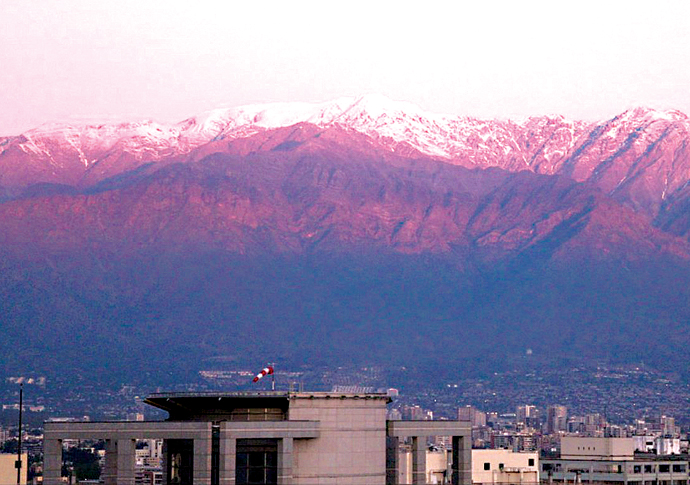Exiled film-maker returns to find a country that still has mountains to climb
Thursday, 13th October 2022 — By Dan Carrier

Photo: Icarus Films
THE CORDILLERA OF DREAMS
Directed by Patricio Guzman
Certificate: 12a
☆☆☆☆
PATRICIO Guzman was sent into exile after Pinochet’s murderous 1973 coup in Chile.
From his refuge in France, he has been able to look with a refreshing detachment at his nation’s history and it makes his stories more powerful.
His latest film, The Cordillera of Dreams, is the third in a trilogy that is a consideration of the recent past. Guzman has a wisdom-packed approach to film-making, drawing on mediations about the natural world, the expanse of time and our blip-like lives that skitter inconsequentially through it all to make a political point.
His first, Nostalgia for the Light (2011) told the story of political prisoners kept in camps in the Atacama Desert, and how from this high altitude spot they became astronomers. By studying stars, their earthly fate seemed more bearable. His second, The Pearl Button, was the story of one of the “disappeared”, a Pinochet victim thrown into the ocean.
Now, he returns to Santiago and looks at what has changed – and what hasn’t.
Guzman has selected eloquent guides to re-introduce him to the city of his youth.
Author Jorge Baradit, painter Vicente Gajardo and sculptor Franciso Gazitua offer a lyrical view on where the country is at now. Pablo Salas offers a grittier take. As armed police snatch gangs brutally waded into crowds, Salas bore witness. Salas, a cameraman, filmed the story of Chile from the coup onwards, and in his office he has hundreds of hours of images of decades of civil strife.
Salas’s archive gives Guzman a flesh and blood hero for his narrative, and brings the story down to a human level.
Salas has no illusions. He explains that while the dictatorship has gone, it has been replaced by another power dynamic. He talks of how the Santiago rich have built communities with motorways leading straight to the airport.
Chilean society continues to be divided, and the malignant forces that were abroad when Salvador Allende was murdered remain.
This film completes Guzman’s trilogy with a satisfying solidity. The use of the Cordilleras as the time-weighed, silent, brooding giant next to the fleeting lives of the humans who live beneath its shadowy grandeur is a clever metaphor.
The take-your-breath vistas makes the soldiers waving truncheons around seem all the more petty. It’s as if the mountains are saying – so you think you’re tough? Look at me. You are nothing, and your torture, your psychopathic criminality, is pointless and pathetic.
Both informative and meditatively beautiful, Guzman has a unique voice and it’s perfectly expressed in these original pieces of political documentary.